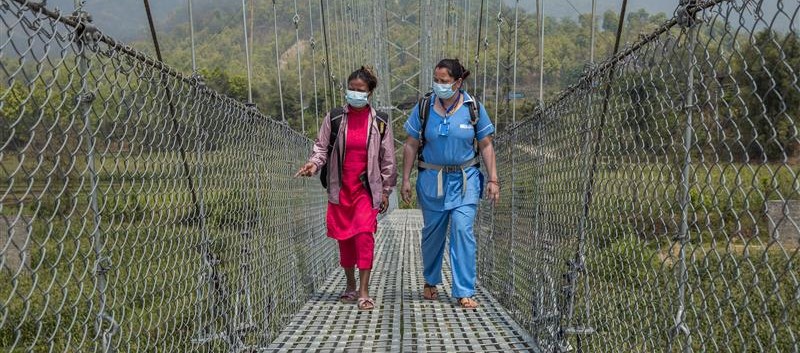
BRIDGES
for Comprehensive Abortion Care
2024-2027
BRIDGES for Comprehensive Abortion Care
Background
Comprehensive sexual and reproductive health and rights (SRHR) are fundamental to health and well-being and to the achievement of gender equality. Yet, access to these services remains out of reach for millions. Within comprehensive SRHR, access to safe abortion remains a particularly neglected area. An estimated 164 million women and girls have an unmet need for safe and effective contraception, half of all pregnancies are unintended and nearly half of all abortions are unsafe.
Building on long-standing experience across sexual and reproductive health and rights, the UN’s Special Programme of Research, Development and Research Training in Human Reproduction (HRP) and the World Health Organization (WHO) are working in partnership with Global Affairs Canada to catalyse and strengthen progress towards achieving country-level impact on access to comprehensive abortion care (CAC) within an overall framework of comprehensive SRHR, gender equality and bodily autonomy, using HRP/WHO’s normative guidance and tools.
BRIDGES for Comprehensive Abortion Care
BRIDGES stands for "bolstering rights, inclusion, and gender equality for SRH" and symbolizes both the programme’s purpose and the vital connection between comprehensive abortion care and these fundamental principles. Recognizing that abortion care relies on, and is an essential part of comprehensive SRH, the initiative supports efforts to strengthen integrated services - including family planning, addressing violence against women, and the generation of evidence to support an enabling policy environment for SRHR.
The BRIDGES initiative includes global level work as well as national, with specific countries including, but not limited to: Democratic Republic of Congo, Ethiopia, Ghana, Liberia, Mozambique, Nepal, Pakistan and Sierra Leone. This work is informed by a feminist developmental approach, integrating innovative, adaptive feminist methods with a strong focus on women's rights and gender equality.

Areas of work
Enabling health-care workers to provide the best care possible:
- Improved competency-based education of CAC and FP for healthcare professionals.
- Collaboration with the International Confederation of Midwives (ICM) and the International Federation and Gynecology and Obstetrics (FIGO) to improve pre-service, competency-based curricula on FP and CAC.
- Guidance and tools developed to support provision of quality, respectful care, including addressing impact of gendered norms and stigma.
Generating and supporting the adoption and use of guidelines and tools in select countries
- National adaptation and use of WHO abortion care guidelines and tools.
- Gathering abortion-related data from national and sub-national assessments.
- Development of a portable device to detect the quality of abortion medicines.
Integrated and comprehensive sexual and reproductive health services:
- Integration of comprehensive SRH services within universal health coverage and in humanitarian settings.
- Embedding comprehensive SRH in processes to digitized health services, in priority setting, when providing post-rape care, and in health and sexuality education.
Strengthening capacity to generate and use policy-relevant data:
- Stakeholder-driven collection and use of data on abortion to drive national agenda-setting.
- Strengthening national capacity to conduct research on abortion and promote evidence-based interventions.
- Generating and providing publicly available global and national data for advocacy.
Promoting strong, responsive partnerships and evidence-based information:
- Creation and us of context-specific, trusted, evidence-based and adaptable materials that support coordinated knowledge sharing of scientific information on SRHR.
- Collaboration and partnerships, especially with government ministries, UN and other implementing partners, civil society organizations, and professional associations.

